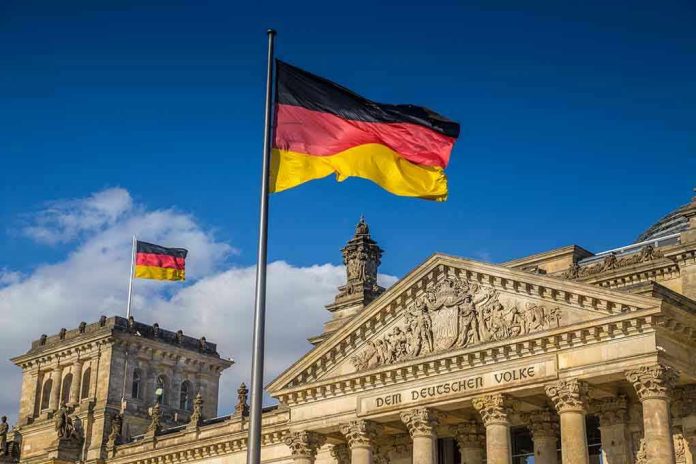
Germany abandons its post-WWII pacifist stance with a massive €377 billion military expansion that could fundamentally reshape European security and restore conscription for the first time since 2011.
Story Highlights
- Chancellor Merz unveils €377 billion plan to build Europe’s strongest conventional army by 2035
- New conscription bill awaits parliamentary approval, reversing 14 years of all-volunteer military
- Bundeswehr troop numbers to surge from 180,000 to 260,000 active soldiers plus 200,000 reservists
- Historic pivot from pacifism driven by Russian aggression and declining U.S. security guarantees
Historic Military Buildup Marks German Awakening
Chancellor Friedrich Merz has announced Germany’s largest military investment since the Cold War, with a €377 billion modernization program designed to transform the chronically underfunded Bundeswehr into Europe’s most powerful conventional force.
This dramatic shift represents the complete abandonment of Germany’s post-WWII pacifist policies that have left the nation vulnerable to Russian threats and dependent on American protection. The program targets full implementation by 2035, with major defense contracts beginning in 2026.
Conscription Returns After 14-Year Absence
The coalition government has approved a new conscription bill that awaits Bundestag approval, potentially ending Germany’s all-volunteer military structure established in 2011. Defense Minister Boris Pistorius champions the measure as essential deterrence, stating that capable armed forces make conflict less likely.
However, the proposal faces significant political resistance from leftist parties and growing skepticism among German youth, with conscientious-objector applications already surging in anticipation of the policy change.
Strategic Response to Russian Aggression
Russia’s 2022 invasion of Ukraine exposed Europe’s defense vulnerabilities and triggered Germany’s “Zeitenwende” or turning point moment. NATO officials warn of possible Russian attacks within four years, while the United States increasingly demands Europe shoulder greater defense responsibilities.
Chancellor Merz bluntly acknowledges this reality, declaring that “Putin only understands the language of power.” This represents a complete reversal of decades-long German reluctance to meet NATO’s 2% GDP defense spending target.
Economic and Industrial Transformation
The military expansion promises substantial benefits for Germany’s defense industry, with major contracts flowing to companies like Rheinmetall and Diehl Defense. The modernization encompasses comprehensive upgrades across land, air, naval, and space capabilities, creating significant job opportunities and industrial growth.
Germany’s central geography and economic strength position it as the cornerstone of European defense architecture, making this investment crucial for continental security beyond German borders.
This military awakening signals Germany’s recognition that pacifist idealism cannot protect against authoritarian aggression. The success of this transformation depends on parliamentary approval, public support, and Germany’s willingness to embrace its role as Europe’s primary military power in an increasingly dangerous world.
Sources:
Germany Plans Military Expansion to Build Europe’s Top Army
Germany Moves to Build Europe’s Strongest Army by 2035
Germany Wants to Build Europe’s Strongest Army: A New Conscription Bill Is Moving That Closer




